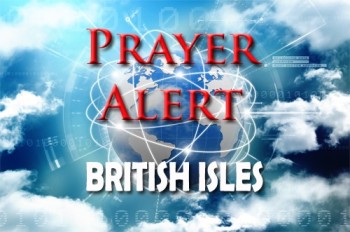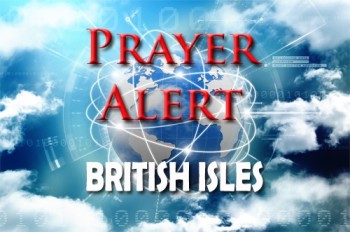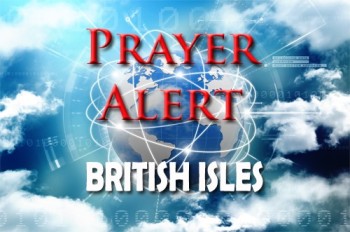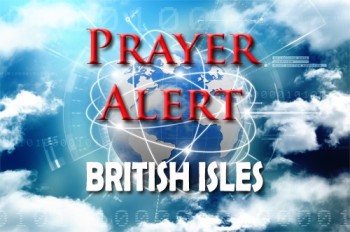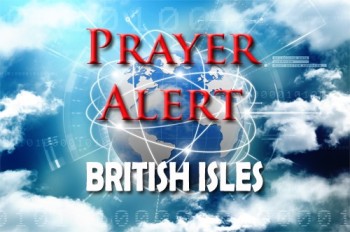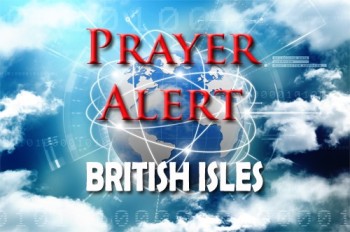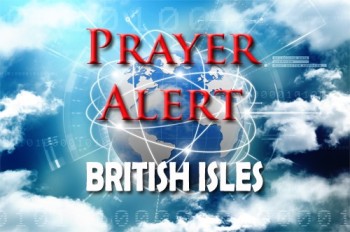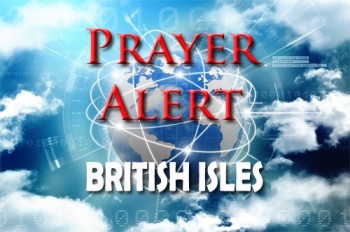Displaying items by tag: Scotland
Church of Scotland to take neutral stance on Scottish assisted dying bill
The Church of Scotland is set to become the first major UK denomination to adopt a neutral stance on assisted dying, marking a significant shift from its historic opposition. This move comes ahead of a crucial Scottish Parliament vote on a private member’s bill seeking to legalise assisted dying for terminally ill individuals with mental capacity. While the bill has strict safeguards - requiring approval from two doctors - critics warn of potential future loosening of eligibility criteria. Scotland’s first minister, John Swinney, a Church of Scotland member, has voiced concerns and is expected to vote against the bill. Proponents argue the change reflects broad public support, with polls indicating that two-thirds of Scots back assisted dying. Humanist and faith-based campaigners alike see the church’s neutral stance as bridging divides between secular and religious perspectives. In contrast, other UK faith groups remain firmly opposed, citing fears of abuse and coercion. As debate intensifies, the Church’s position is seen as pivotal in shaping future discussions on compassionate end-of-life choices in Scotland.
Scotland: deadly ‘Frankenstein’ drug sparks urgent health alert
A nationwide health alert has been issued in Scotland following a surge in deaths and overdoses linked to heroin laced with nitazene-type synthetic opioids, known as ‘Frankenstein’ drugs. Nitazenes are up to 500 times stronger than heroin, with no safe way to use them. Overdoses have been sudden and severe, often requiring multiple doses of naloxone to reverse effects. Public Health Scotland (PHS) has warned that the unregulated drug market remains highly toxic and unpredictable. Authorities are advising people not to use the drugs alone, avoid mixing substances, recognise overdose signs, and carry naloxone. As Scotland faces a worsening drug crisis, prayers are needed for protection, recovery, and wisdom for those working to combat addiction and save lives.
Incredible reports of revival sweeping across UK
A fresh move of God is sweeping across the UK, with increasing reports of prayer gatherings, healings, and spiritual renewal. Pastor Craig Cooney of Hope Church, Northern Ireland, describes it as 'a rising river', signaling the end of the spiritual drought caused by the pandemic. He notes that weekly prayer meetings are growing, with believers interceding passionately for the lost. Testimonies of divine healings are becoming more frequent, even among those previously skeptical. In England, Rev Liz Doyle recently prayed with British leaders inside Windsor Castle, sensing God’s promise to bring revival to St George’s Chapel. Scotland, too, is experiencing breakthrough: Franklin Graham’s Glasgow event saw over 7,000 people attend, with many surrendering to Christ. This revival mirrors Elijah’s servant seeing a cloud the size of a man’s hand - a sign of greater things to come. God is calling His people to prayer, consecration, and deeper commitment. See
First person charged in Scotland under abortion buffer zone law
A 74-year-old woman has become the first person charged in Scotland under the new Abortion Services Act 2024. The law, which came into force in September, bans anti-abortion protests within 200 metres of hospitals and clinics where terminations are performed. The police arrested and charged the woman after reports of a demonstration outside a Glasgow hospital. The case will be referred to the procurator fiscal. Scottish Greens MSP Gillian Mackay, who introduced the legislation, called the protests 'shameful' and thanked the police for their swift response. She argued that the law is necessary to protect women from intimidation while accessing healthcare. The incident follows controversial remarks by US vice-president JD Vance, who falsely claimed that Scots could be prosecuted for private prayer in their homes. The Scottish government dismissed his comments as misinformation, reaffirming that private prayer is not prohibited. Mackay urged potential demonstrators to 'think again', warning that future protests will be stopped, and legal consequences will follow.
Scotland: Bible translator honoured with MBE
Aberdeenshire solicitor Gordon M Hay has been awarded an MBE for his pioneering translation of the entire Bible into Doric, a variant of the Scots language. Spanning 17 years, his work includes the New Testament, published in 2012, and the Old Testament, completed in 2022. This milestone marks the first time the entire Bible has been translated into any Scots dialect. Hay’s translation journey began in 2006 when he was asked to translate passages for the Buchan Heritage Society's annual Doric service. Encouraged by the positive reception, he embarked on the monumental task of translating both Testaments, producing over 800,000 words. His contributions have garnered recognition from the Scottish Parliament and royal circles, with invitations to read at Crathie Kirk by the now King Charles III. A dedicated Church of Scotland elder for 30 years, Hay also translates literary classics, writes Doric nursery rhymes, and plays the organ. He remains an active cultural ambassador for the Doric language.
Scotland: NHS will struggle to last another year
Scotland’s NHS faces a critical future: the British Medical Association (BMA) has warned it may not survive another year without urgent reforms. It has stressed the need for transformative changes to maintain the NHS’s founding principle of free care at the point of need. BMA chairman Dr Iain Kennedy described the system as 'in constant crisis’, with understaffed facilities leaving doctors physically and mentally exhausted. A recent survey revealed 99% of doctors are deeply concerned about increasing pressures, with many reporting dangerously overcrowded emergency departments and unsustainable workloads. Dr Kennedy called for a comprehensive workforce plan, long-term funding strategies, and integrated approaches to primary, secondary, and social care. Without reform, more people may be forced into private healthcare or left without access to necessary treatment. The Scottish government acknowledged the concerns, proposing record investments in health and social care. See also
Alex Salmond’s body to be flown home from North Macedonia
The body of 69-year-old Alex Salmond, Scotland’s former first minister and champion of Scottish independence, will soon be flown back from North Macedonia, where he died suddenly. He passed away from a suspected heart attack at a lake resort after participating in a forum. A spokesman for the forum confirmed that repatriation procedures for his body are nearly complete, with a special flight scheduled in the coming days. Salmond was leader of the Scottish National Party (SNP) and served as first minister from 2007 to 2014. He led the push for Scottish independence, bringing the country to a referendum in 2014, where independence was narrowly rejected (55% to 45%). He then resigned, to be succeeded by Nicola Sturgeon, his long-time ally turned political rival. His death marks the end of a significant chapter in Scottish political history.
Scottish Labour stunned by rebellion on winter fuel payments
Two Scottish Labour MPs have surprised their leader Anas Sarwar by voting against the party line in support of a non-binding motion urging the UK government to reverse cuts to the winter fuel payment. The motion, proposed by first minister John Swinney, was passed by a large majority, with members of all other parties, including the Scottish Conservatives, backing it. Making this payment dependent on means testing, part of a broader debate about austerity measures inherited from the Conservative government, is opposed by the SNP. Sarwar defended Labour’s position, arguing that the Chancellor did not want to cut the payment but was constrained by the economic challenges left by the previous administration. However, critics have warned that the cuts would force many elderly citizens to choose between heating and eating this winter.
Scotland: £500m cuts to public spending
Scotland's deputy first minister, Shona Robison, has announced £500 million in public spending cuts to address financial pressures. The cuts, which span various sectors, aim to balance Scotland’s budget while facing ongoing economic challenges. Robison emphasised that difficult decisions were necessary to manage increasing demands on public services and rising costs. The cuts will affect education, healthcare, and transport, sparking concerns from public sector workers and unions. Critics argue that the reductions could lead to decreased quality in essential services and further strain on already under-resourced sectors. Robison defended the cuts as crucial to prevent long-term financial instability, noting that the government is committed to protecting vital services as much as possible. However, she acknowledged that the cuts were far from ideal and called for a review of how public funds are distributed and used efficiently.
Scotland: increase in drug-related deaths
Scotland has seen a concerning rise in drug-related deaths, with 1,172 fatalities recorded in 2023 - a 12% increase after two years of declines. Dr Tara Shivaji, a consultant at Public Health Scotland (PHS), highlighted that these statistics represent real people whose families are now grappling with grief. The unregulated drugs market in Scotland is becoming increasingly toxic and unpredictable, with a surge in potent synthetic drugs which are often mixed with other substances, with deadly consequences. Dr Shivaji says that Scotland's drug crisis is deeply rooted in social issues such as poverty, homelessness, trauma, and stigma. Addressing these underlying factors is essential for tackling the crisis. PHS is committed to working with various organisations to reduce these inequalities and improve public health outcomes, recognising that there are no simple solutions to this complex challenge.
